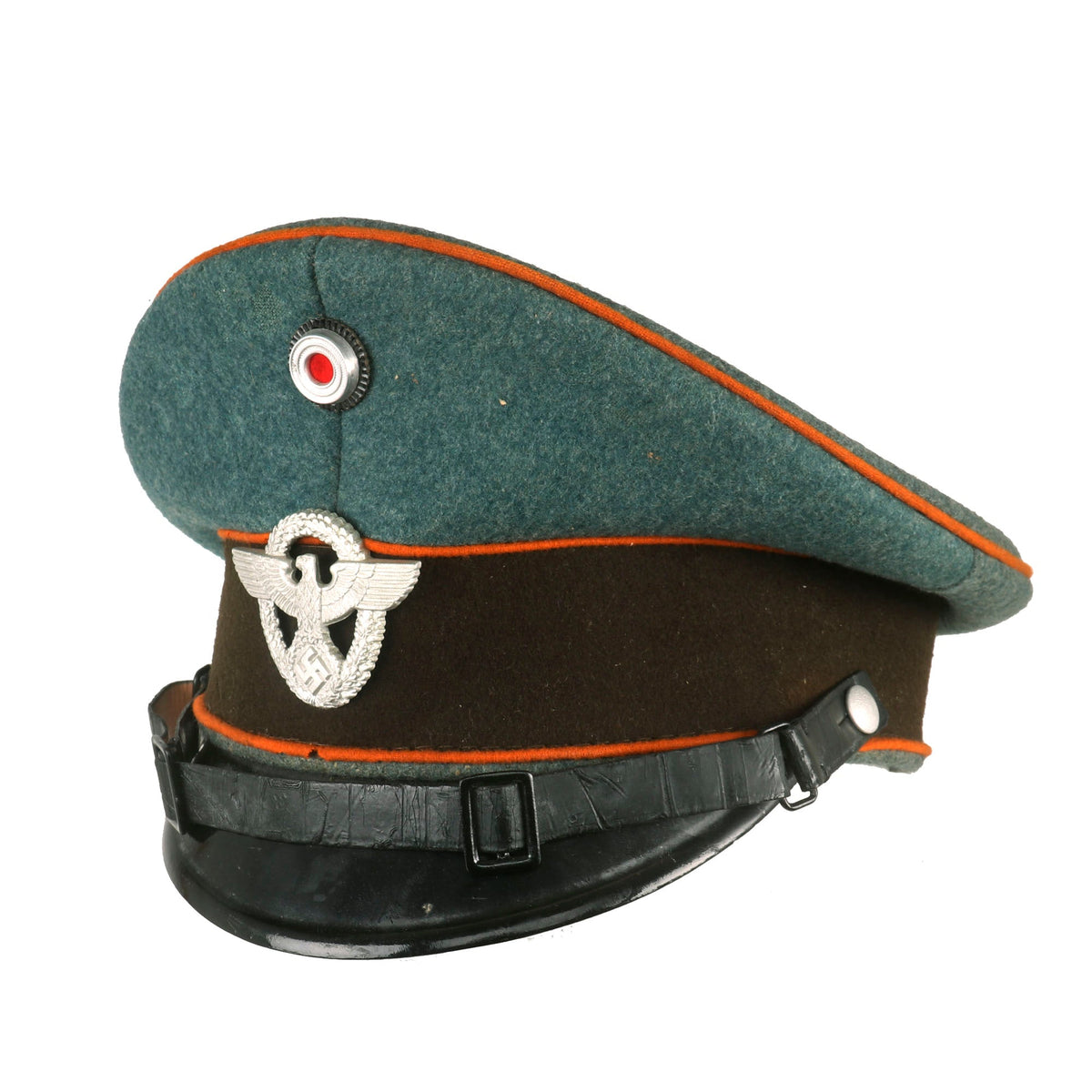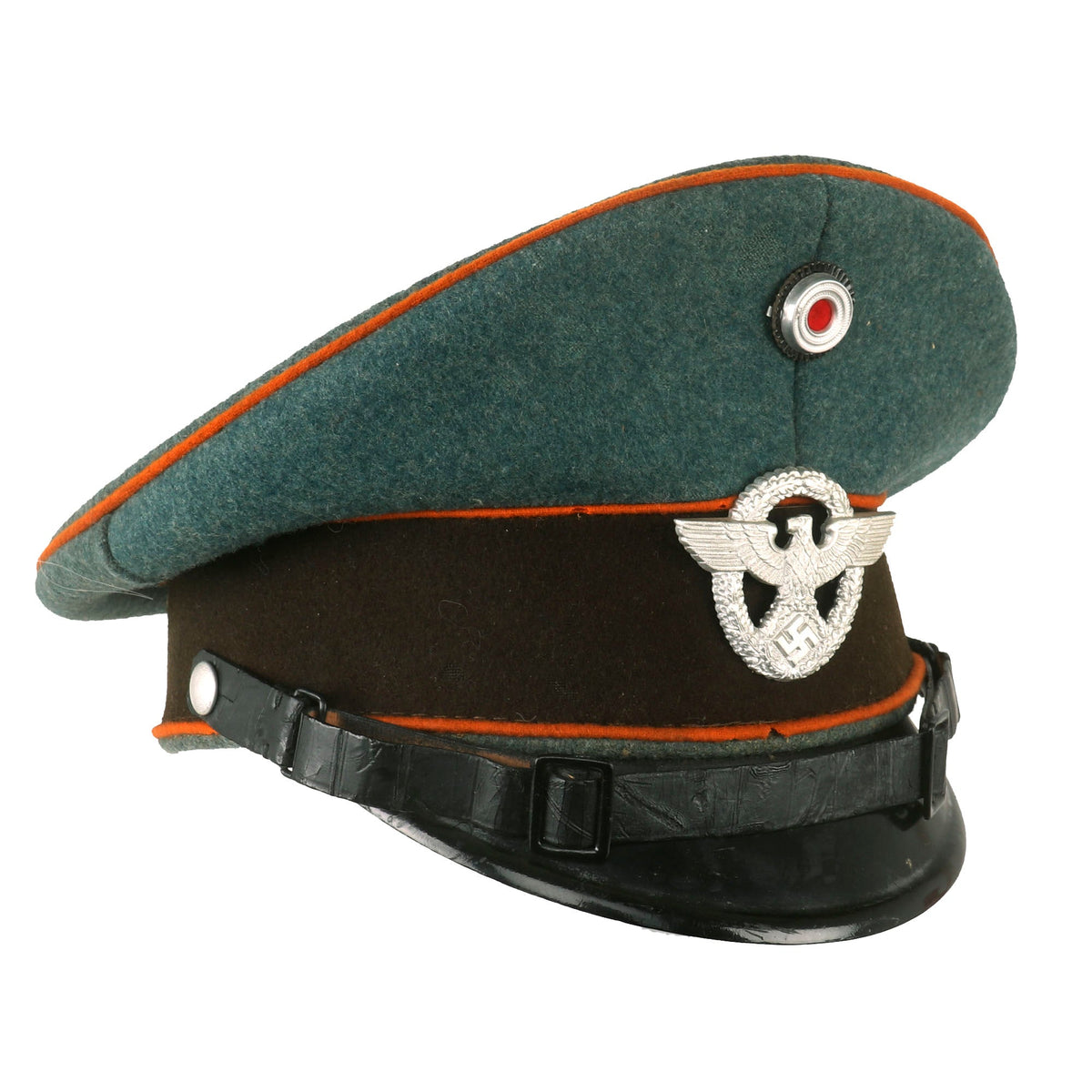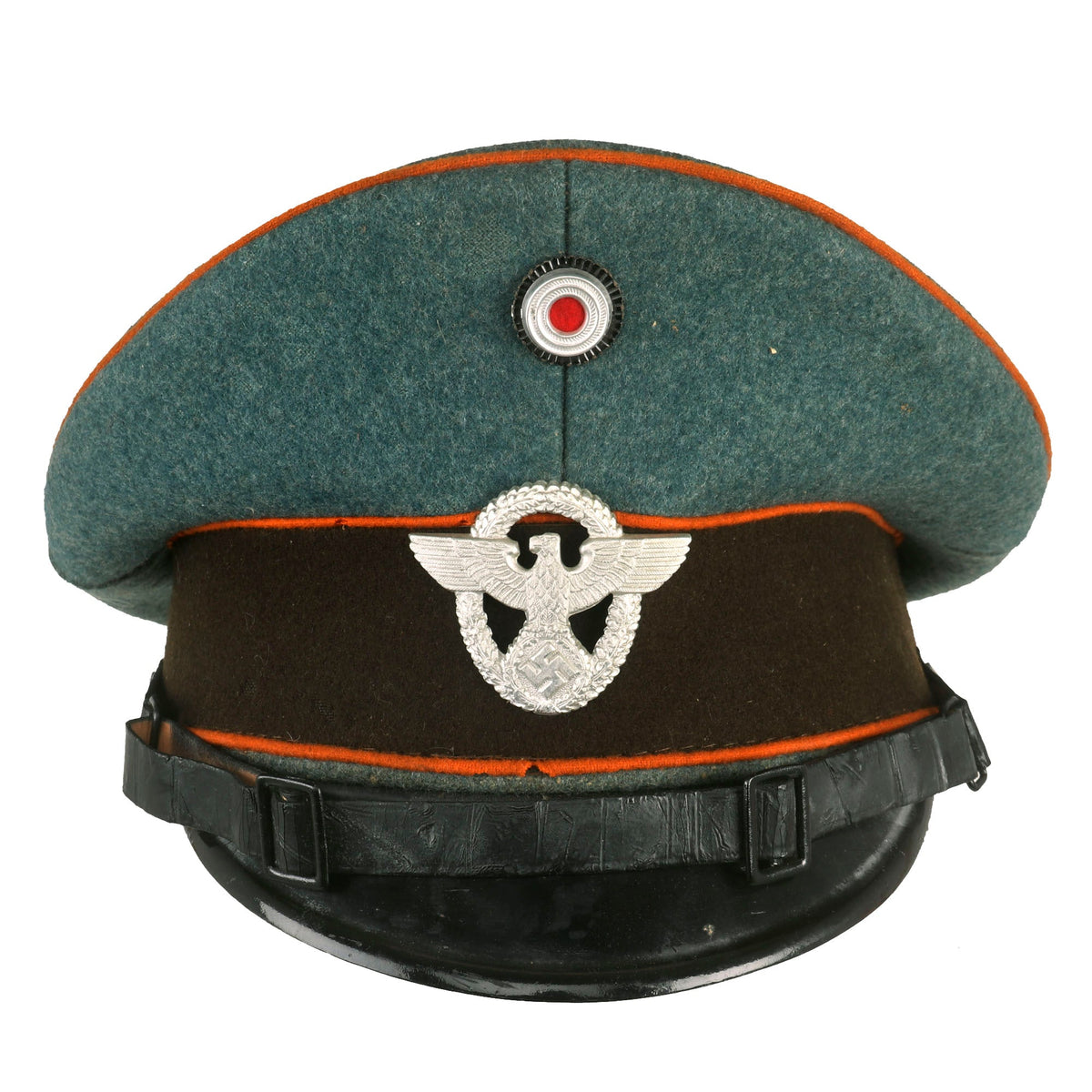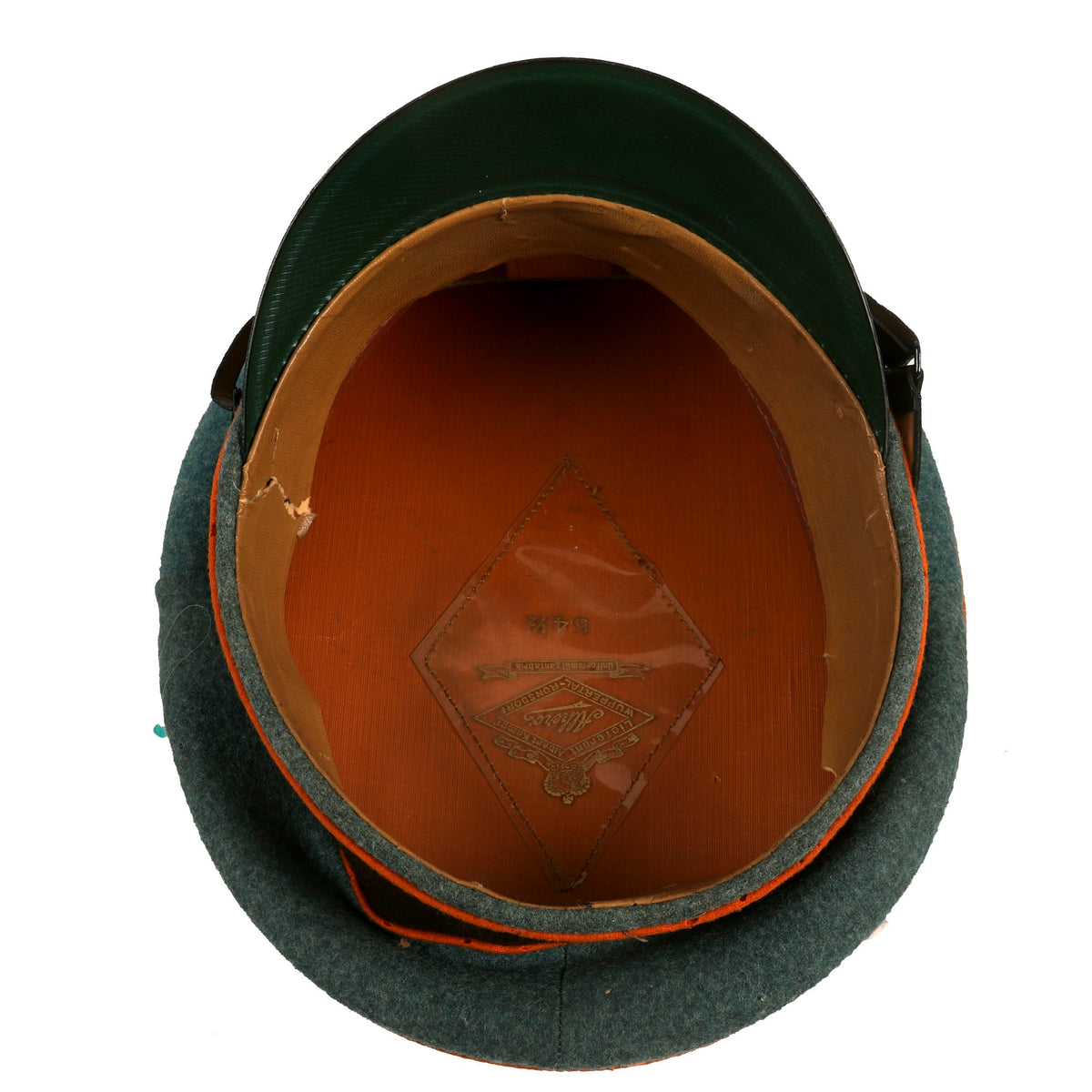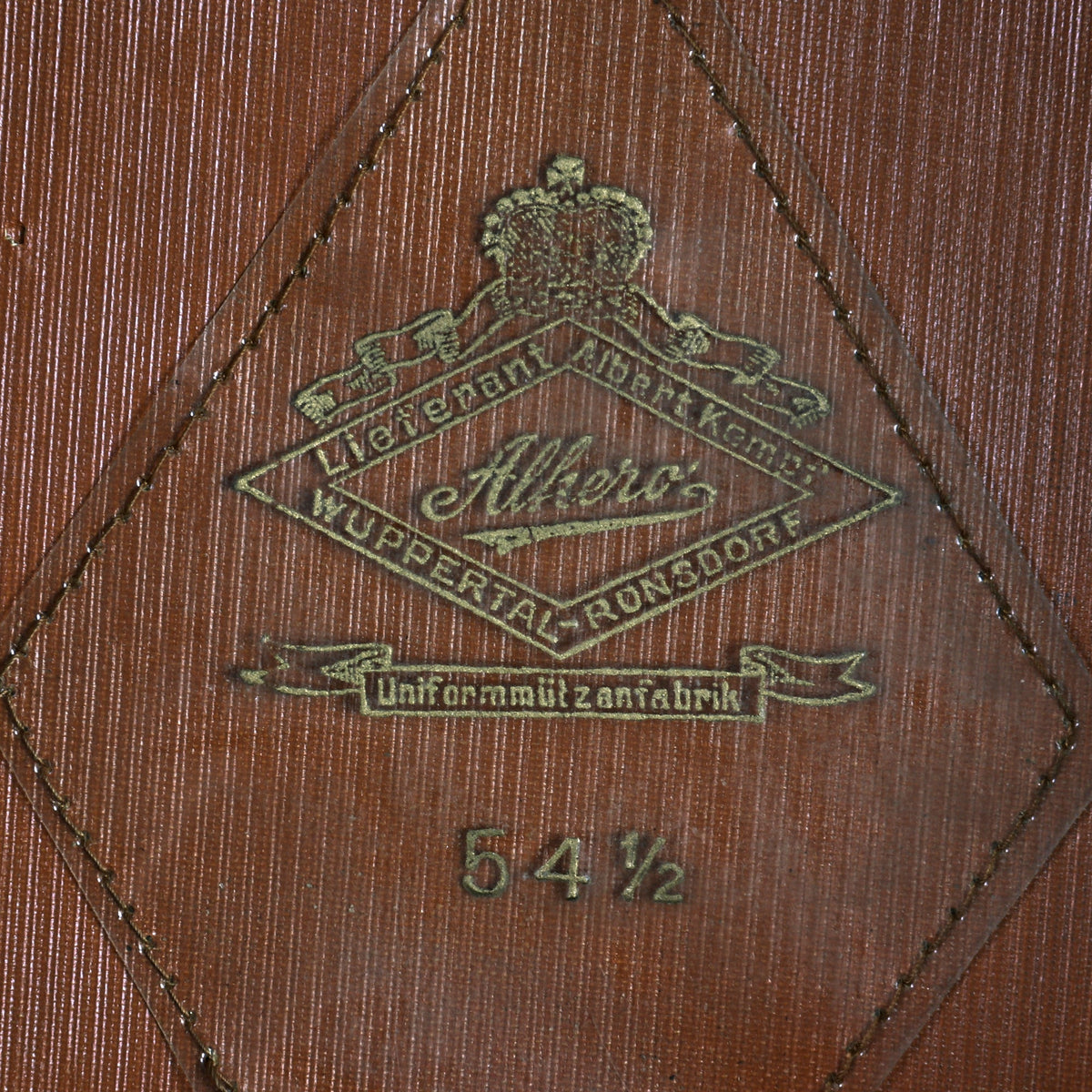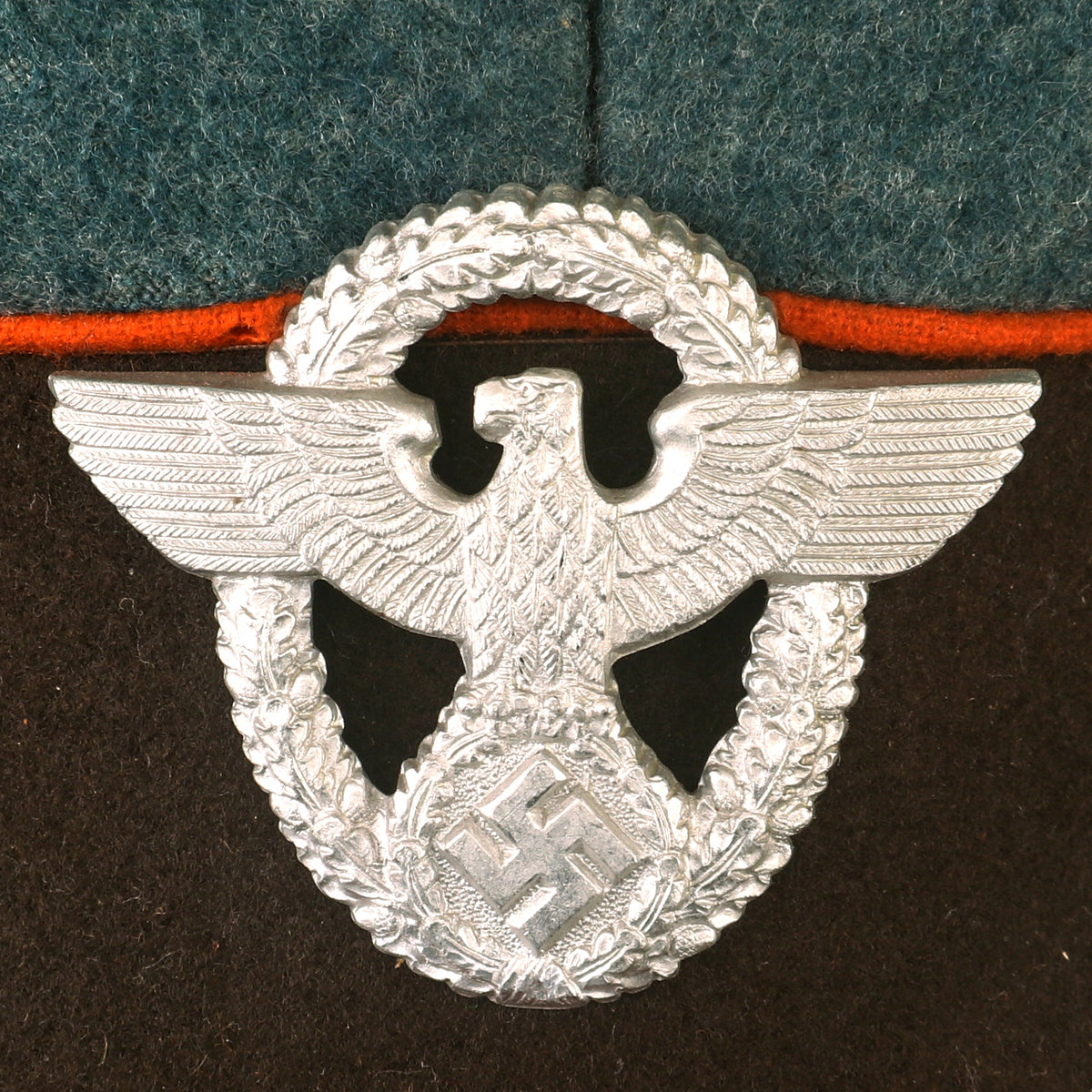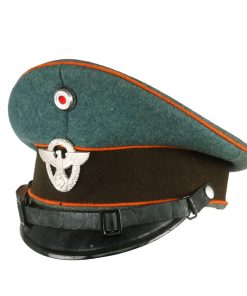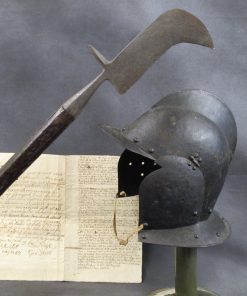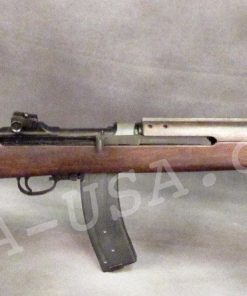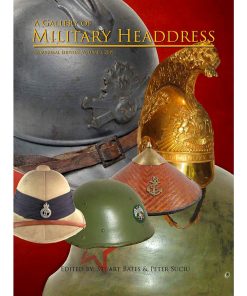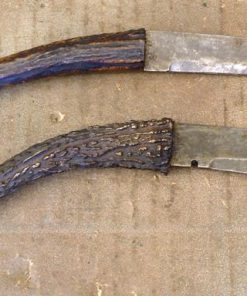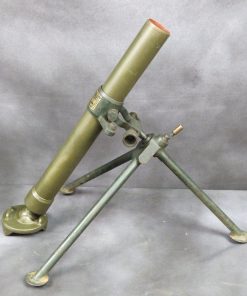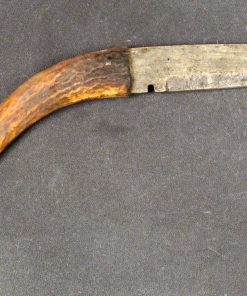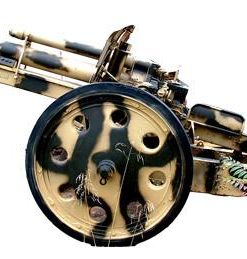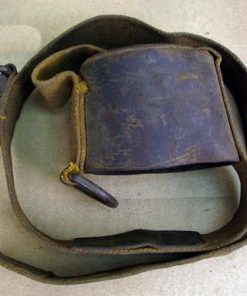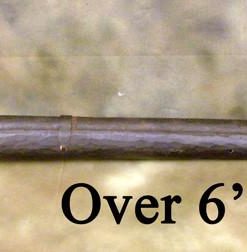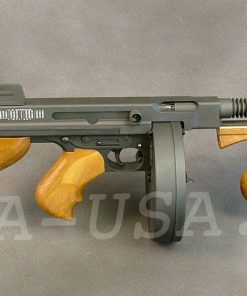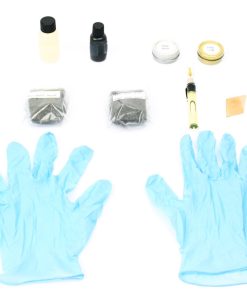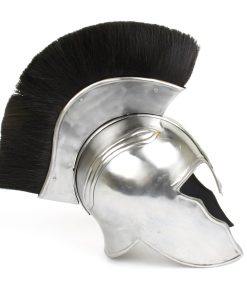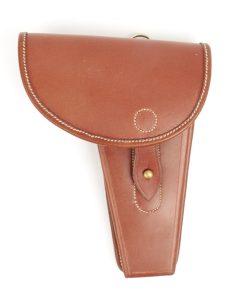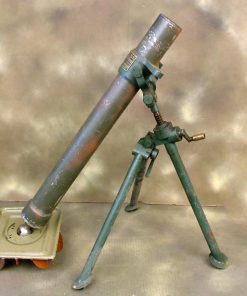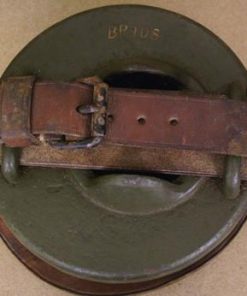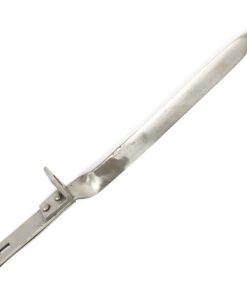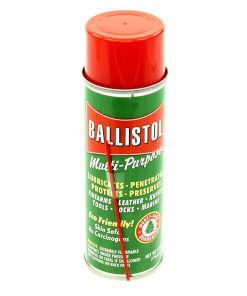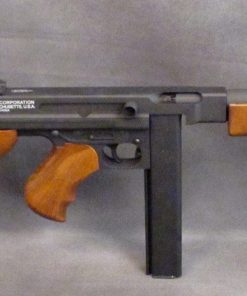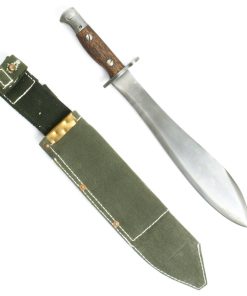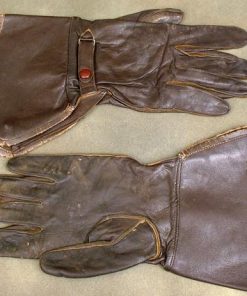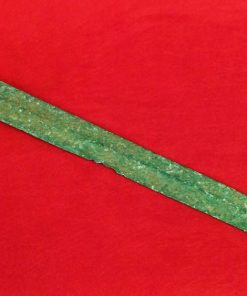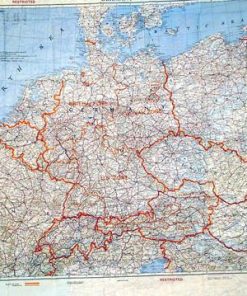Original German WWII Gendarmerie Rural Police NCO’s Schirmmütze Visor Cap by Alkero – size 54 ½ Original Items
$ 595,00 $ 178,50
Original Item: Only One Available. The Ordnungspolizei, abbreviated Orpo, meaning “Order Police”, were the uniformed police force in NSDAP Germany from 1936 to 1945. The Orpo organization was absorbed into the NSDAP monopoly on power after regional police jurisdiction was removed in favor of the central government (“Reich-ification”, Verreichlichung, of the police). The Orpo was controlled, nominally by the Interior Ministry but its executive functions rested with the leadership of the SS until the end of World War II. Owing to their green uniforms, Orpo were also referred to as Grüne Polizei (green police). The force was first established as a centralized organization uniting the municipal, city, and rural uniformed police that had been organized on a state-by-state basis. Eventually the Police were divided into eight assorted branches of service, with each branch having a distinguishing truppenfarbe, (Branch of service color) that was displayed on the uniforms including the piping on the visor caps.
The Gendarmerie (state rural police) were tasked with frontier law enforcement to include small communities, rural districts, and mountainous terrain. They were issued uniforms with Orange-gelb (Orange-yellow) truppenfarbe piping and insignia. With the development of a network of motorways or Autobahnen, motorized gendarmerie companies were set up in 1937 to secure the traffic. The German Police had no enlisted ranks, with the lowest rank being an Unterwachtmeister which was equivalent to the German army rank of Unteroffizier. The NCO’s type of cap would have been worn by the ranks of Unterwachtmeister to the rank of Hauptwachtmeister of the Gendarmerie.
This is a very good condition condition German WWII Gendarmerie NCO Schirmmütze Visor Cap, with a lovely gently sloped “Saddle Form” shape. It looks to originally have been constructed this way, as it has this shape even though the crown stiffener is still present. The front peak of the cap is also quite high, especially when compared to other visor caps we usually see. It is fabricated from the correct police blue green “doeskin” wool, with a chocolate brown “badge cloth” band and a traditional high front. The visor cap has matching Orange-gelb (Orange-yellow) piping along the top edge and flanking either side of the band, which is the Truppenfarbe (troop colors) for the Gendarmerie (Rural Police).
It is decorated with a metal tri-color cockade on the peak, and an aluminum Civic Police eagle in the middle of the band. As this is an NCO’s visor cap, it has a leather double buckled chin strap attached to pebbled buttons on the sides of the cap. The chinstrap has suffered age related degradation, and the patent leather finish has “melted” over the years, as we often see. The vulcanfibre visor has a smooth black leather-look upper, exhibiting some light wear along the edge and is checkered green on the underside. There is some checking and crazing higher up on the visor, where it was in contact with the chinstrap.
The inside of the cap is lined on the top with light brown oil cloth, showing very light wear, and the celluloid sweat shield diamond on the top is mostly intact with fully intact stitching. The maker name and size are printed in gold, and are still easily visible.
Lieferant Albert Kempf
Alkero
WUPPERTAL-RONSDORF
Uniformmützenfabrik
54 ½
We have had several other visor caps by Albert Kempf under their “Alkero” brand, and they were a well-respected company, often supplying the police.
The faux leather pressed paper liner is present, with a light finish on the exterior. It has unfortunately become delicate over the decades, and now has a tear on the right side near where the visor meets the body. It does not look to have seen major use during the WW2 period.
Condition is very good, showing only light overall staining, with the colors very well retained. There has been some moth damage to the cap, particularly on the bottom two rows of piping, and there is also some damage to the cap band. It’s very common to see this in areas that are more protected from the light.
Offered for sale in very good condition with a beautiful shape, and ready to display!
The Ordnungspolizei encompassed virtually all of NSDAP Germany’s law-enforcement and emergency response organizations, including fire brigades, coast guard, and civil defense. In the prewar period, Heinrich Himmler, head of the SS, and Kurt Daluege, chief of the Order Police, cooperated in transforming the police force of the Weimar Republic into militarized formations ready to serve the regime’s aims of conquest and racial annihilation. Police troops were first formed into battalion-sized formations for the invasion of Poland, where they were deployed for security and policing purposes, also taking part in executions and mass deportations. During World War II, the force had the task of policing the civilian population of the occupied and colonized countries beginning in spring 1940.
The visor cap (Schirmmütze) was an important part of the headgear worn by German uniformed military, civil, paramilitary and political organizations during the Third Reich. This was the standard cloth headgear worn as a part of the service uniform. Visor caps were worn outdoors as well as indoors, and were often required to be worn by all personnel on duty. Visor caps were made in versions specific to each organization and were often further differentiated through the use of insignia, colored piping, or style of chin cord, to indicate rank, role or branch. The insignia used on these caps ranged from simple stamped metal emblems, to elaborate hand embroidery. Visor caps were issued to enlisted soldiers and NCOs in the military and in some other organizations. Officers had to purchase their own hats, and lower ranks could choose to purchase caps that were of a higher quality than the rather basic, issue examples. The private purchase caps were generally made in very high quality, with fine materials. A wide variety of fabrics were used, from Trikot and doeskin, to heavy wool, or even lightweight white fabric for summer wear. In the military, issue of these caps was generally suspended shortly after the outbreak of the war, but they continued to be worn by some troops until the end of the war.
Fast Shipping with Professional Packaging
Thanks to our longstanding association with UPS FedEx DHL, and other major international carriers, we are able to provide a range of shipping options. Our warehouse staff is expertly trained and will wrap your products according to our exact and precise specifications. Prior to shipping, your goods will be thoroughly examined and securely secured. We ship to thousands clients each day across multiple countries. This shows how we're dedicated to be the largest retailer on the internet. Warehouses and distribution centres can be located throughout Europe as well as the USA.
Note: Orders with more than one item will be assigned a processing date depending on the item.
Before shipping before shipping, we'll conduct a thorough inspection of the items you have ordered. Today, the majority of orders will be delivered within 48 hours. The delivery time will be between 3-7 days.
Returns
The stock is dynamic and we cannot completely manage it because multiple stakeholders are involved, including our factory and warehouse. So the actual stock may alter at any time. It's possible that you may not receive your order once the order has been made.
Our policy is valid for a period of 30 days. If you don't receive the product within 30 days, we are not able to issue a refund or an exchange.
You can only return an item if it is unused and in the same state as the day you received it. You must have the item in its original packaging.
Related products
Uncategorized
Armored Burgonet Helmet & Polearm from Scottish Castle Leith Hall Circa 1700 Original Items
Uncategorized
Uncategorized
Uncategorized
Armoured Fighting Vehicles of the World: AFVs of World War One (Hardcover Book) New Made Items
Uncategorized
Uncategorized
Uncategorized
Uncategorized
Band of Brothers ORIGINAL GERMAN WWII Le. F.H. 18 10.5cm ARTILLERY PIECE Original Items
Uncategorized
Uncategorized
Uncategorized
Uncategorized
Uncategorized
Uncategorized
Uncategorized
Angolan Rebel 1970s era 60mm Inert Display Mortar from Angolan Civil War Original Items
Uncategorized
Uncategorized
